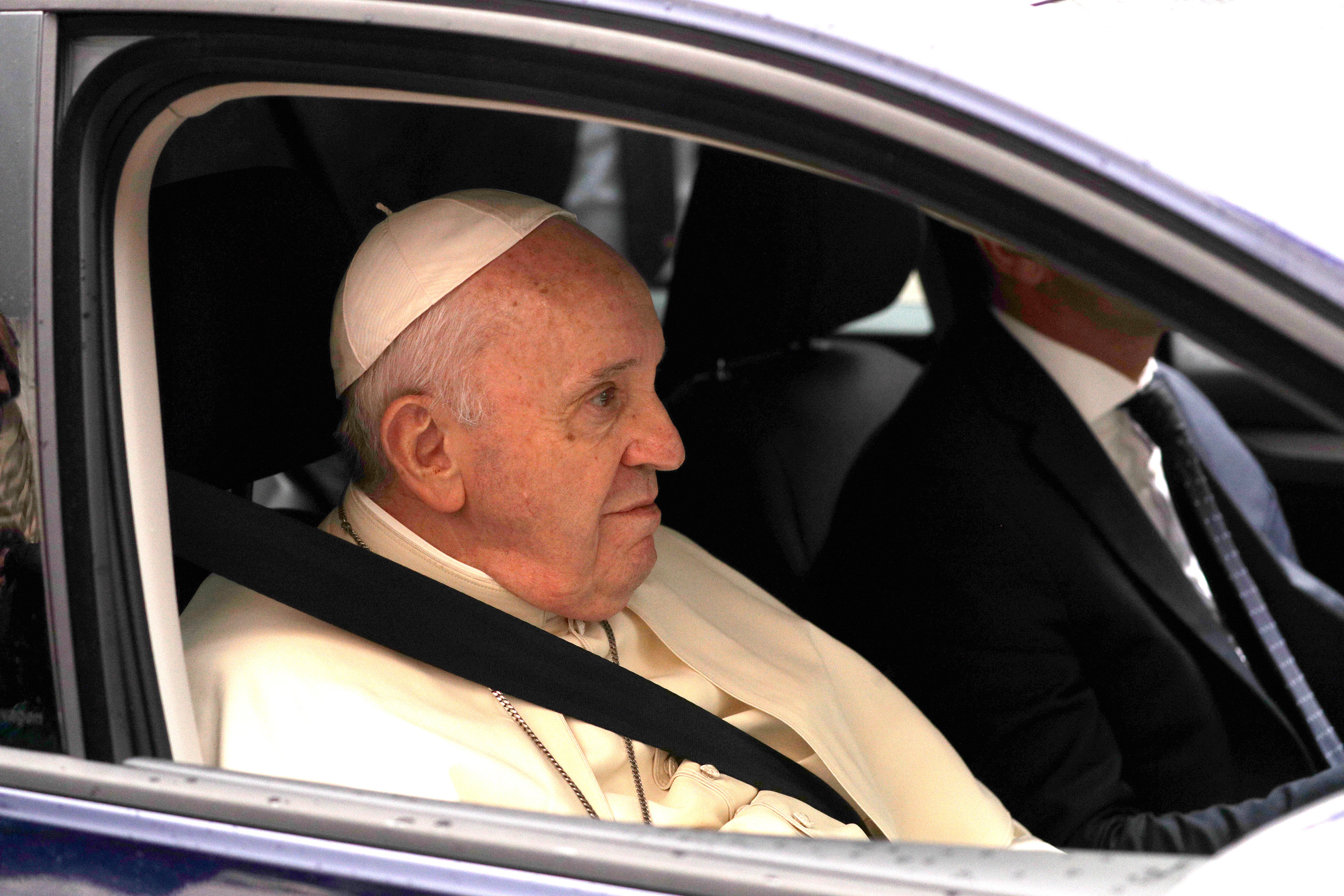Pope in 1st post-lockdown outing goes to Assisi to sign text
Pope Francis has traveled to the tomb of his nature-loving namesake to sign an encyclical laying out his vision of a post-COVID world built on solidarity, fraternity and care for the environment

Your support helps us to tell the story
From reproductive rights to climate change to Big Tech, The Independent is on the ground when the story is developing. Whether it's investigating the financials of Elon Musk's pro-Trump PAC or producing our latest documentary, 'The A Word', which shines a light on the American women fighting for reproductive rights, we know how important it is to parse out the facts from the messaging.
At such a critical moment in US history, we need reporters on the ground. Your donation allows us to keep sending journalists to speak to both sides of the story.
The Independent is trusted by Americans across the entire political spectrum. And unlike many other quality news outlets, we choose not to lock Americans out of our reporting and analysis with paywalls. We believe quality journalism should be available to everyone, paid for by those who can afford it.
Your support makes all the difference.Pope Francis travelled to the tomb of his nature-loving namesake and signed an encyclical Saturday laying out his vision of a post-COVID world built on solidarity, fraternity and care for the environment.
In his first outing from Rome since late February, Francis celebrated Mass in the crypt of the Basilica of St. Francis in the Umbrian hilltop town of Assisi After the service, Francis invited the translators of various editions of the encyclical up to the altar and signed the texts.
The document, “Fratelli Tutti” (“Brothers All”), is to be released to the public on Sunday, which is the feast day of St. Francis of Assisi. It is in many ways expected to be a synthesis of the main priorities of Francis’ pontificate, such as greater solidarity with the poor, dialogue with others and care for God’s creation.
For Francis, the coronavirus pandemic has only confirmed his beliefs on the interconnectedness of the health of the planet and the people who live on it. For weeks, he has preached of the need to use the pandemic as an opportunity to reform global economic, political and social structures to ensure that the world's most marginalized people aren't left even farther behind after the coronavirus passes.
“Our world needs to be healed not only of the present virus, but also of the ‘social ills' of inequality, injustice and exclusion that afflict so many of our brothers and sisters in the human family," the pope during his Wednesday general audience this week.
Like the rest of Italy, the Vatican locked down for nearly three months during the worst of the country’s outbreak, forcing the pope to cancel audiences and travel. His trip to Assisi marked his first outing since he travelled to Bari on Feb. 23 before the lockdown started.
Vatican encyclicals are the most authoritative form of papal teaching and they traditionally take their titles from the first two words of the document. In this case, “Fratelli Tutti” is a quote from the “Admonitions,” the compendium of 28 guidelines penned by St. Francis in the 13th century.
The title has sparked controversy in the English-speaking world, with critics noting that a straight translation of the word “fratelli" (brothers) excludes women. The Vatican has insisted that the plural form of the word “fratelli" is gender-inclusive and that the document by its very nature is inclusive of women.
Francis' decision to sign the document in Assisi and release it on the saint's feast day is yet further evidence of the outsized influence St. Francis has had on the papacy of the Jesuit pope, the first to name himself after the mendicant friar.
St. Francis renounced a wealthy, dissolute lifestyle to embrace a life of poverty and service to the poor. He was considered a radical disobedient during his lifetime, but in the centuries since his death his legacy has become that of a simple, nature and peace-loving man of faith.
___
Winfield reported from Rome.